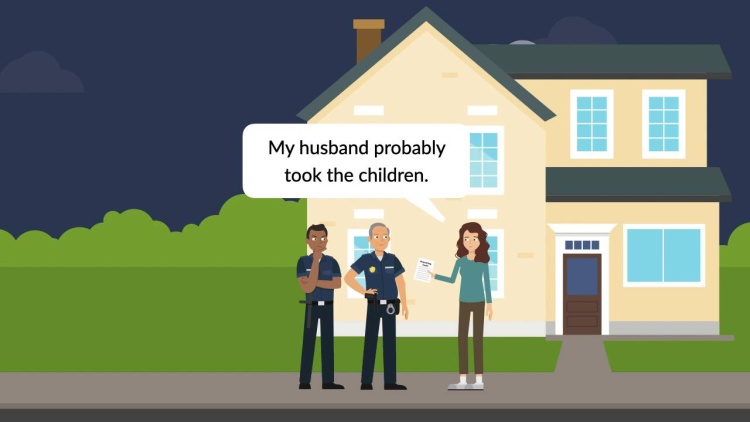Castle Rock v. Gonzales
United States Supreme Court
545 U.S. 748 (2005)

- Written by Sean Carroll, JD
Facts
Jessica Gonzales (plaintiff) filed a complaint against the Town of Castle Rock (defendant) in district court alleging that the town violated the Due Process Clause of the Fourteenth Amendment to the United States Constitution when its police officers, acting pursuant to official policy or custom, failed to respond properly to her repeated reports that her estranged husband was violating the terms of a restraining order. On June 22, 1999, Gonzales noticed her three children were missing. Suspecting that her husband took them, she called the police. Gonzales was previously issued a restraining order stating that the police department must enforce it. It granted limited rights to Gonzales’s husband to visit their three young daughters with notice and pursuant to a court-arranged schedule. She told the police about the restraining order, but the police made no effort to enforce it or search for her children. Gonzales’s husband arrived at the police department and began firing a handgun. The police killed him. Inside the cab of his pickup truck, the police found the bodies of all three daughters, whom he had already murdered. Gonzales’s suit alleged that the department had violated the Due Process Clause because it had “an official policy or custom of failing to respond properly to complaints of restraining order violations” and “tolerated the non-enforcement of restraining orders by its police officers.” The complaint also alleged that the town’s actions “were taken either willfully, recklessly or with such gross negligence as to indicate wanton disregard and deliberate indifference to” Gonzales’s civil rights. The district court dismissed the complaint. The court of appeals reversed in part, holding that Gonzales had failed to state a substantive-due-process claim but adequately stated a procedural-due-process claim. The United States Supreme Court granted certiorari.
Rule of Law
Issue
Holding and Reasoning (Scalia, J.)
Concurrence (Souter, J.)
Dissent (Stevens, J.)
What to do next…
Here's why 907,000 law students have relied on our case briefs:
- Written by law professors and practitioners, not other law students. 47,100 briefs, keyed to 996 casebooks. Top-notch customer support.
- The right amount of information, includes the facts, issues, rule of law, holding and reasoning, and any concurrences and dissents.
- Access in your classes, works on your mobile and tablet. Massive library of related video lessons and high quality multiple-choice questions.
- Easy to use, uniform format for every case brief. Written in plain English, not in legalese. Our briefs summarize and simplify; they don’t just repeat the court’s language.






